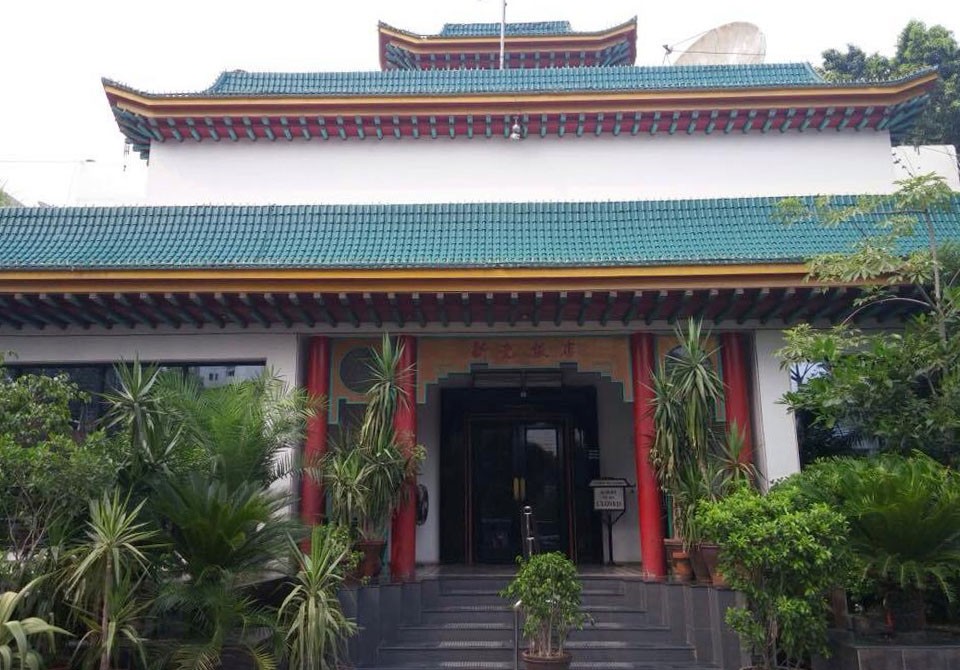
We have lots to thank the small Chinese community of the 1980s for. Sadly, things today are different. All these people have gone away. Maybe the new guys in town will choose to stick around and make Pakistan their home

If you grew up in the eighties in Lahore, you’ll know that the city was something else back then. Not what it has become today. Choice was a rare luxury, available to few in even fewer avenues.
We had PTV, but not much else. So we grew up watching Knight Rider and Air Wolf at 8pm, followed by the Khabarnama at nine. There was that God awful Neelam Ghar on the weekends. On the streets, we had Hico ice cream and that guy selling terrible toys on his bicycle. There was Naz Pan Masala and Jubilee chocolate. Depending on where one lived, there was also Beadon Road ki ice cream and Benazir ka falouda. Those were the days!
And if one decided to go out for a meal, the choices decreased dramatically. There were the old-town desi places on Abbot Road and beyond. But if you wanted to stay downtown, you could count the options on your fingers.
And it was during these best of times, that we made two new friends: Steve and Mr Lee.
These two fine gentlemen were the owners and operators of two of the top Chinese restaurants in town, namely Shanghai and Tung Fung. While Mr Lee was content with his establishment, Steve expanded.
From Tung Fung, which had a local partner, Steve first made Tai Wah, adding Hsin Kuang in 1989, and later, Golden Wok. His wife Anne (God bless her soul) opened a nice parlour for the ladies of Gulberg, and soon the two were a household name in the city. Incidentally, we were neighbours as well. So when I went to meet Steve, it was like going back in time.
"Everyone’s left," says Steve. We are sitting in his office underneath Hsin Kuang, his last remaining restaurant in the city.
"Mr Lee and his entire family moved off to North America, and my kids are settled in Canada. Eventually, I’ll join them too."
Hsin Kuang will close down? What a horrific thought.
"Not anytime soon though, but it’s bound to happen."
The fact remains that there is not a lot left tying people like Steve to the land anymore. Had his children chosen to stick around, join the business or even take up jobs in the local industry, things might have been different. But that didn’t happen.
"Before the fall of Dhaka in ‘71, there were maybe five to seven Chinese families in Lahore," Steve reminisces. "After the war, the number doubled."
Still, it was a small, close knit community.
With Steve at one point running three top eateries in the city, it clearly effected the bottom lines of the other families: Mei Kong was the first to go under, and most recently, Shanghai. "I suppose I had a part to play in that," Steve admits. With decreasing profits and the kids moving abroad, it made sense for a lot of families to move away as well.
"The restaurant industry has diversified quite a bit, when Golden Wok opened up, there were just three restaurants in Defence. Today there are more than 20."
In simple economics, this means not only increased competition but also decreasing profits. Add to that the rising costs of rent and utilities, it is suddenly easier to understand why Golden Wok has recently been shut down and the property sold.
At the same time, in recent years, there has been a major influx of another generation of Chinese professionals into Pakistani society. Most of this new crop has come on the back of the development projects being done by the Chinese in Pakistan (read CPEC).
Are these guys here permanently? It’s too early to say. But they have a long way to go before they can come close to people like Steve and Mr Lee who spent the best years of their lives not only as Pakistanis but Lahoris.
Almost everybody who was growing up in Lahore during the eighties knew somebody from the Chinese community, starting from Steve and Anne onwards, and reaching down to their nieces and nephews, sons and daughters. As somebody who grew up with them said, "We spoke the same language, we went to same schools and we attended each other’s birthdays."
This is something I can personally vouch for as well. Being neighbours, every basant, we’d have kite duels with Steve’s kids. We won some and lost some, but had a lot of laughs in the process.
Still, with this recent influx, there is now a growing demand for authentic Chinese cuisine, something the industry cannot currently provide. "Obviously, the Chinese restaurants had understood the Pakistani palette and adapted to it," Steve admits. So much so that when I went to China in 2008, I searched high and low, for a common desi Chinese dish known as Manchurian Chicken, only to be bitterly disappointed. Seems we are more Chinese than the Chinese themselves.
In their heyday, the Chinese community had numerous eateries under their belt. Today, there are only three: Mandarin opposite Pace, a takeaway in Model Town by the name of Lung Fa, and, of course, Hsin Kuang.
We have lots of thank the small Chinese community of the eighties for. For many of us their presence in Lahore was our first experience with a culture beyond our own. Young and unburdened by ideas of boundaries, we accepted and were accepted in kind.
Things today are different. All these people who we grew up with, have gone away. But maybe the new guys in town will choose to stick around. And make Pakistan their home. Thank you.